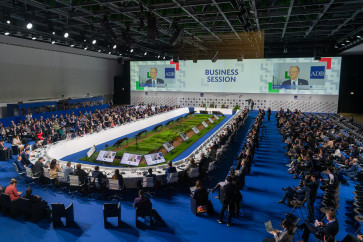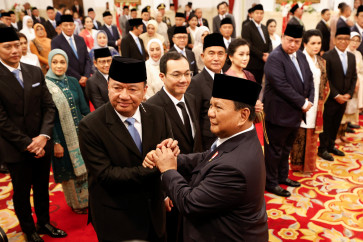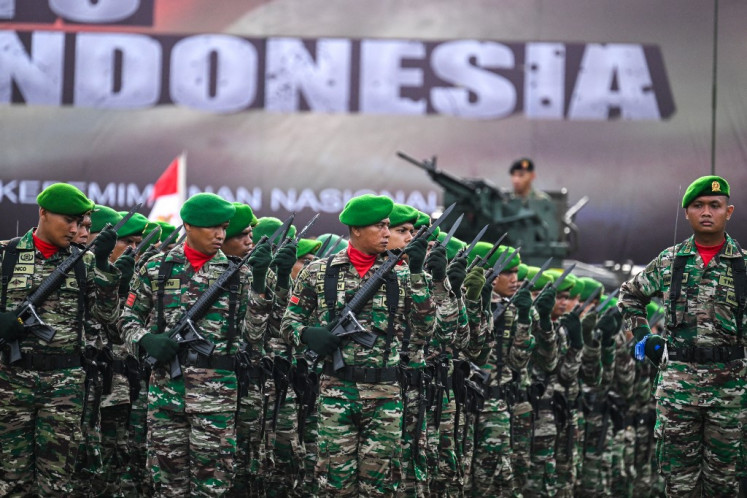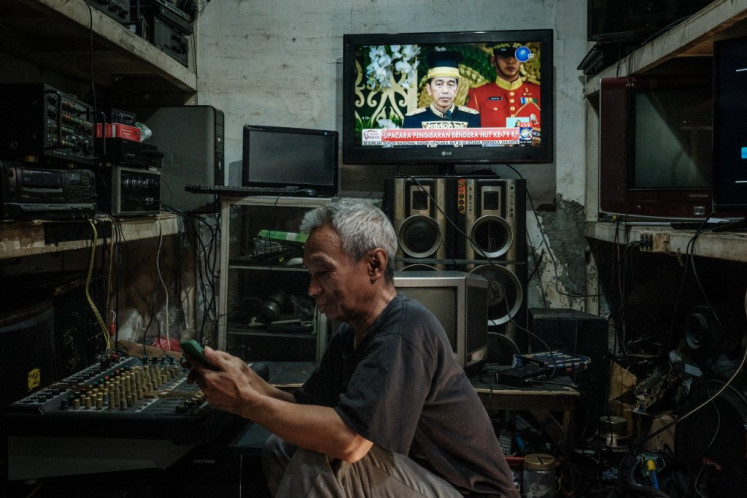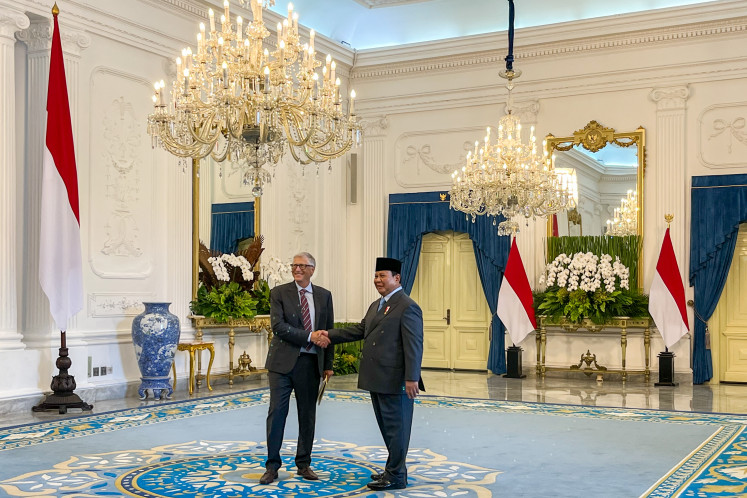Thirsty consumers, businesses suffer in festive season
Change text size
Gift Premium Articles
to Anyone
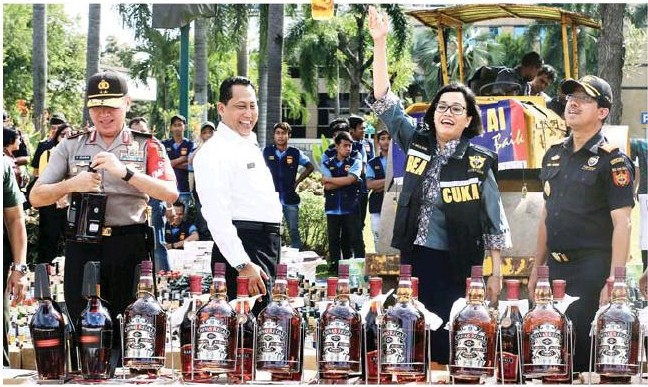 Trashed: Finance Minister Sri Mulyani (second right), accompanied by (left to right) Jakarta Police chief Insp. Gen. Mochamad Iriawan, National Narcotics Agency head Comr. Gen. Budi Waseso and the taxation director of the Directorate General of Customs and Excise Heru Pambudi, hurls an illegally imported bottle of alcoholic drink in Jakarta on Friday. As many as 28,787 bottles of alcoholic drinks, 510 packets of cigars and 3.32 million cigarettes, reportedly representing Rp 12.5 billion (US$ 925,000) in state losses, were destroyed. (JP/Dhoni Setiawan)
Trashed: Finance Minister Sri Mulyani (second right), accompanied by (left to right) Jakarta Police chief Insp. Gen. Mochamad Iriawan, National Narcotics Agency head Comr. Gen. Budi Waseso and the taxation director of the Directorate General of Customs and Excise Heru Pambudi, hurls an illegally imported bottle of alcoholic drink in Jakarta on Friday. As many as 28,787 bottles of alcoholic drinks, 510 packets of cigars and 3.32 million cigarettes, reportedly representing Rp 12.5 billion (US$ 925,000) in state losses, were destroyed. (JP/Dhoni Setiawan)
I
ndonesia is “drier” this festive season as obtaining alcoholic beverages has become more difficult following a recent string of government policies, such as a ban on the sale of alcohol in minimarkets, higher excises and the ongoing deliberation of the alcohol prohibition bill.
With Christmas and New Year’s Eve celebrations just around the corner, Phineas Steven, 26, who lives in Cikokol, Tangerang, Banten, said he was planning to go to nightclubs to celebrate the festive season while enjoying a few drinks.
“Although on the one hand the prohibition of alcohol sales in minimarkets may have reduced crime rates, I am personally disappointed because now I have to go to clubs or other places far from home more frequently just to get a beer,” he told The Jakarta Post over the telephone on Friday.
(Read also: Alcohol prohibition bill stalled until 2017)
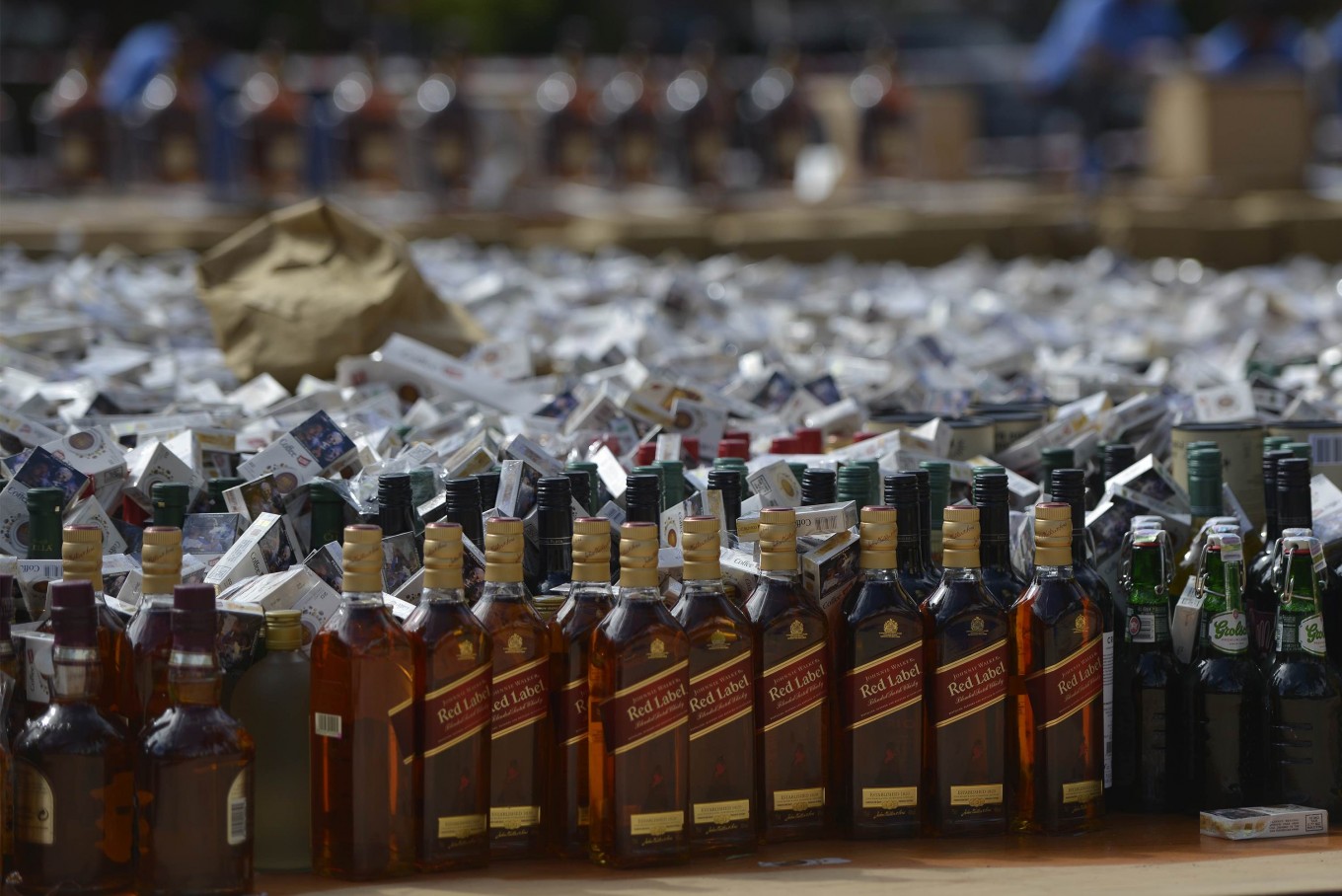
Over the past several years, the government has intensified its restrictions on the sale of alcoholic drinks at convenience stores, insisting that they are needed to protect Indonesians from the dangers of alcohol abuse.
Since 2015, convenience stores across the country — except in some tourist areas — have been prohibited from selling liquor.
Under a Trade Ministry regulation, beverages with alcohol content ranging from 1 to 5 percent can only be sold at supermarkets.
The policy has had a negative impact on convenience stores, as previously they reaped a windfall from higher sales during the festive season. Minimarket chain 7-Eleven, for instance, suffered huge losses and has already closed 25 of its stores this year.
Besides banning the sale of alcohol in minimarkets, the government has also shown a strong commitment to combatting the smuggling of liquor, including approaching New Year’s Eve.
(Read also: More 7-Eleven stores close down amid alcohol ban, high operating expenses)
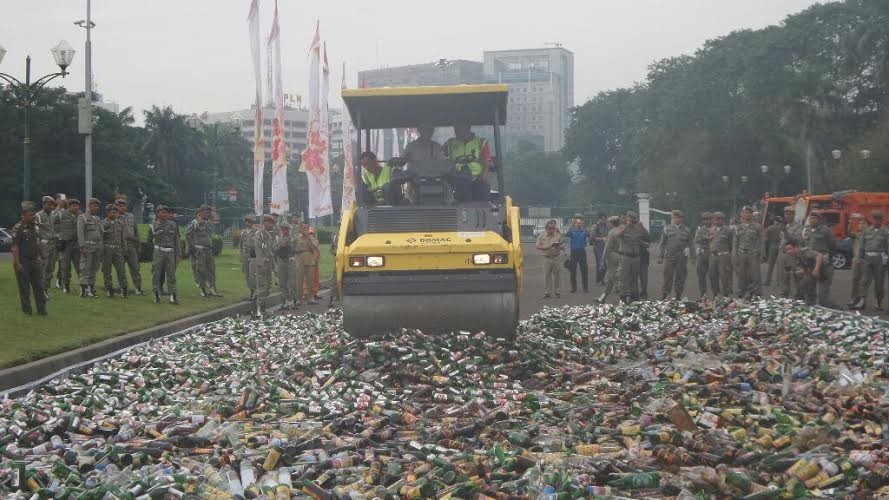
On Friday, thousands of alcoholic drinks that entered Indonesia illegally from various countries, including the US, the UK, the Netherlands and China, were destroyed.
“Getting closer to New Year’s Eve, the demand [for illegal goods] increases; therefore the supply also rises. We have to be more vigilant,” National Narcotics Agency (BNN) chief Comr. Gen. Budi Waseso said.
The Tanjung Priok customs and excise office seized a 40-foot container packed with 36,400 bottles of soju (Korean vodka) on Wednesday, which had been imported by PT SPMB.
The container’s contents were wrongly declared as elevator parts.
Indonesian Malt Beverage Producers Association (GIMMI) executive committee member Ronny Titiheruw said that it supported the government’s action to combat illegal alcoholic drinks, but urged paying closer attention to the industry. With so many regulations limiting alcohol consumption, Institute for the Development of Economics and Finance (INDEF) economist Aviliani acknowledged that it was customers who had to bear the consequences.
“The government should not be too excessive because each person has his or her own behavior. Such a regulation is good for children under 17 years of age, but we can’t prohibit adults because it is their own right,” she said.
Entrepreneur Andris Juliawan, 30, who moved to Bali a few months ago, now feels glad about living in a major tourist destination because he can easily find alcoholic beverages everywhere, even inside a warung (food stall).
“I am glad that here in Bali, I can find beer everywhere, even in a warung! It was so troublesome in Jakarta because I couldn’t buy beer at minimarkets,” Andris said, adding that he drank beer three times a week while socializing with friends.


